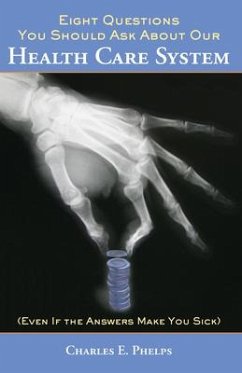The U.S. health-care sector is an amazing endeavor. It produces about one-sixth of the U.S. gross domestic product. If viewed as a separate country, it would rank as the seventh-largest economy in the world. But despite our outspending the rest of the world for medical care, our health outcomes are depressingly low. Whether measured by life expectancy at birth or the more-responsive infant death rate, we are not getting as much "bang for the buck" as other nations' health-care systems produce. This discrepancy between spending and outcomes drives much of the concern about our health-care system. Why does the system work the way it does? In this book, Charles E. Phelps provides a comprehensive look at our current health-care system and the behaviors of its major players: consumers, providers, and the government. Phelps discusses how health insurance changes medical use and suggests various ways to control costs. He outlines the good things about the health-care system--such as the benefits that advances in technology have provided--but also shows that the system has demonstrated large-scale confusion about whom to treat and how intensively to treat them. The author also underscores some of the worst things about the system: such as how everything about our health financing system seems purposefully designed to keep everybody, patients in particular, in the dark about how much various treatments cost--a problem exacerbated by the generosity of the insurance coverage held by many people. He suggests that fixing this problem requires some mix of incentives, Rules, and information and that all of these must improve for both providers and consumers. Perhaps the biggest problem, Phelps explains, derives from our own unhealthy behaviors. He reveals the hard truth that our own lifestyle choices are the primary true causes of our illness and death. Thus, he explains, it turns out that one of the best ways to improve the population's health is to improve education. It may well be that the most powerful health reform we can enact would be to fix our K-12 educational system.
Hinweis: Dieser Artikel kann nur an eine deutsche Lieferadresse ausgeliefert werden.
Hinweis: Dieser Artikel kann nur an eine deutsche Lieferadresse ausgeliefert werden.








